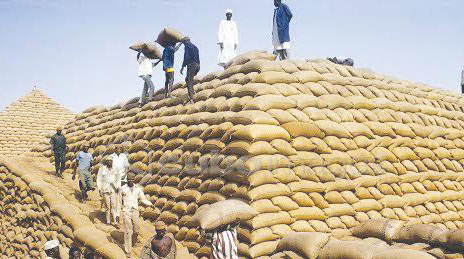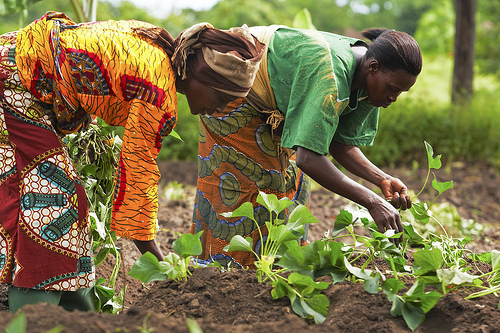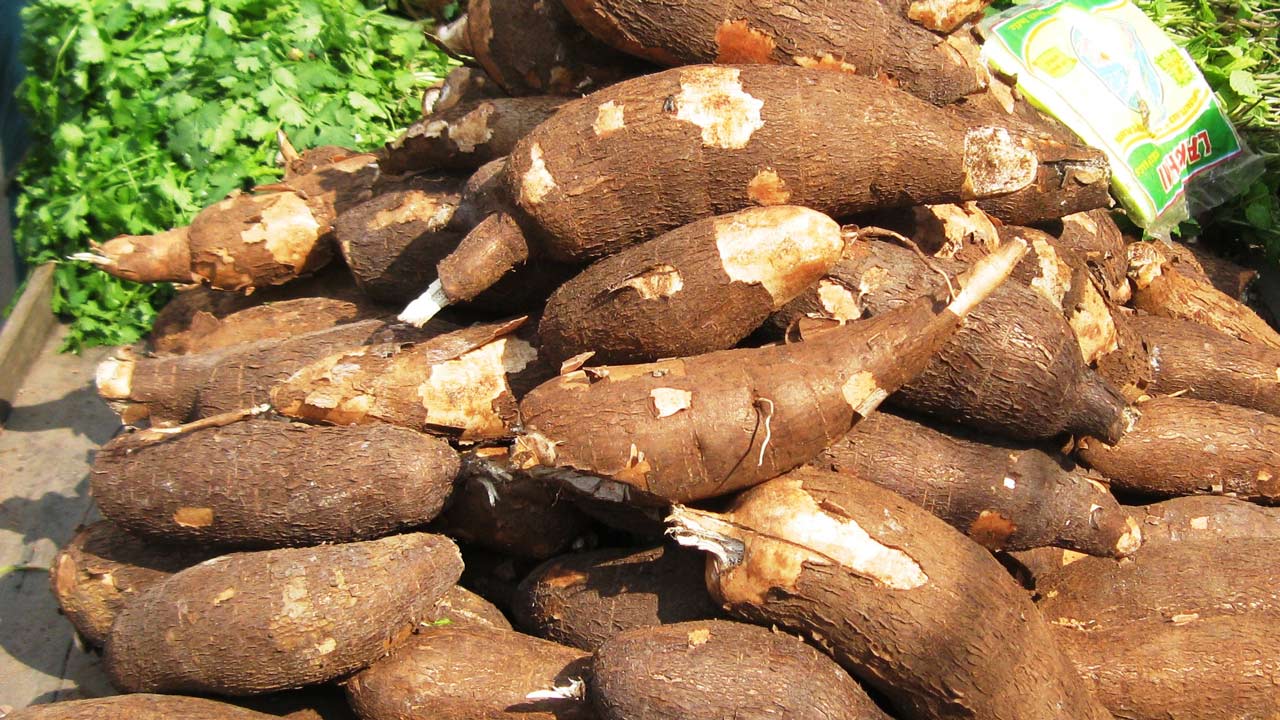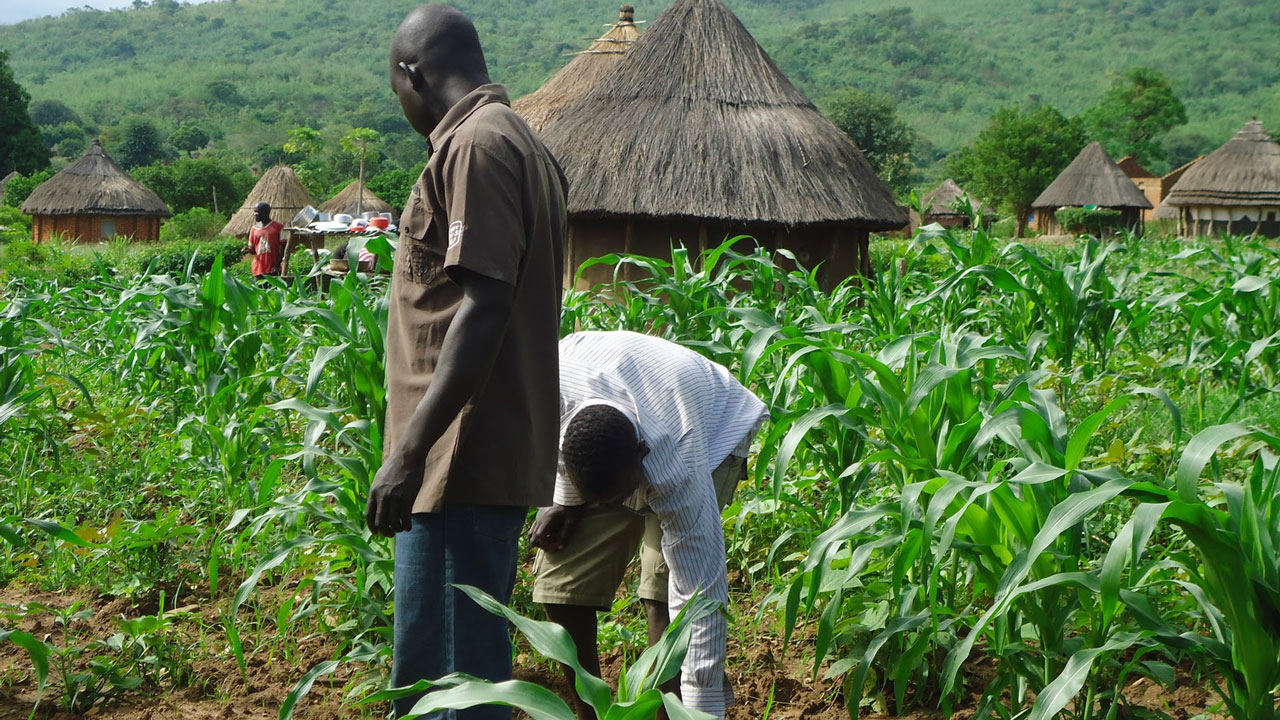
Despite concerted efforts by successive administrations to put the Agriculture sector in its pride of place, its growth has been retarded over the years, jeopardising the much anticipated food security dream.
Of great concern currently, is the fact that after 63 years of independence, Nigeria is still not food sufficient, relying on food and agro produce importation from other countries to fill the huge food deficit gap.
Before the discovery of crude oil, agriculture was the mainstay of the country’s economy, contributing substantially to its Gross Domestic Product (GDP) and export earnings. This, however, changed when focus shifted to crude oil, which led to a decline in agricultural output.
Reminiscing the era of groundnut pyramid, cocoa boom, oil palm and others where the country earned huge foreign exchange in the past, would always bring tears down the check of players in the sector of how the sector had degenerated over the years due to nonchalant attitude of successive administrations.
A confirmation to this sad development, is the country’s food import bill, which has risen to the region of trillions of naira as the country now imports virtually all food produce, as demand continues to outweigh supply, including agro produce, which the country has comparative advantage on.
Investigations showed that aside palm oil, maize, millet, rice and many others that are usually imported, the country now imports coconut, pineapple, cocoyam, plantain and even tomato among other staple foods, which can easily be cultivated across states in the country.
Currently, the country’s import bill has surged astronomically. The country recorded the highest imports of agricultural goods in 2021 as produce valued at N2.7tr was imported. Though it dropped in 2022, when N1.9tr worth of food imports transactions were conducted, according to the National Bureau of Statistics (NBS).
Data obtained from the NBS and the Central Bank of Nigeria (CBN) revealed that the country’s total agricultural imports from 2018 to 2022 amounted to N6.916t, while total agricultural exports within the period was N1.997tr, resulting in an agricultural trade deficit of N4.919tr.
For instance, the country, which at a time occupied the vantage position as the leading exporter of Palm Oil in the world, is now a net importer, depending largely on other countries to meet the huge supply gap over the years.
Nigeria was overthrown as the world’s largest palm oil producer by Malaysia and Indonesia in 1966.
Currently, Nigeria is the largest consumer of the produce in the continent, consuming approximately 2.5 million metric tonnes yearly, while domestic production stands at less than 1.3 million metric tonnes, leaving a deficit of over 1.2 million metric tonnes, according to the President of the National Palm Oil Produce Association of Nigeria (NPPAN), Alphonsus Inyang.
Before the crude oil boom, cocoa was the country’s principal non-oil foreign exchange earner. But over the years, the industry has been grappling with limiting challenges, hampering its potential.
Though Nigeria is the fourth largest producer of cocoa globally, behind Côte d’Ivoire, Ghana, and Indonesia, but its output is still comparatively low compared to Côte d’Ivoire, which produces 2,200,000 tonnes yearly, while Nigeria’s total yearly output is about 340,163 tonnes.
Unfortunately, the fortune and promise hold by the sector dropped, immediately the country shifted its focus to crude oil, which led to a drastic decline in its agricultural output.
This paved way for series of challenges, such as poor infrastructure, inadequate research and development, dearth of mechanised farming techniques, aging farmers, lack of protection for local industries and funding, among others, which maximally handicapped the sector.
As lack of funding remains a major dilemma, the administration of Muhammed Buhari doled out intervention through the Anchor Borrowers Programme (ABP) to change the fortune of the sector.
Compared to past administrations, Buhari’s administration was hell bent on tackling the funding debacle, as a huge sum of money, in the region of about N1.9tr was released to farmers, according to the International Monetary Fund (IMF).
But instead of boosting food production, the intervention was hampered by poorly targeted loan recipients, use of funding purposes unrelated to agriculture, weak incentive regarding repayment structure, among other factors for its perceived failure, with over N577b yet to be recovered.
Though the Federal Government scored itself high, especially in the area of rice cultivation, which was the major thrust of the intervention, but instead of the price of rice to go down, it is currently tilting towards N50, 000 per bag, making it unaffordable for most Nigerians.
These and many more have triggered serious concern among Nigerians, as the sector seems to still be crawling at a time when it supposed to be net foreign exchange earner for the country.
The Chief Executive Officer, Renee Golden Multiventures, Adenike Apeji, lamented that 63 years after gaining independence, the has sector find itself in a state of uncertainty, struggling to meet its potential and the demands of a rapidly growing population.
She said: “Nigeria, a country with immense agricultural potential, has long been known for its contributions to the global agricultural commodities market. The groundnut pyramids of the past and the cocoa boom were hallmarks of Nigeria’s agricultural prowess, capturing the world’s attention and generating significant revenue.
“Agriculture is still largely in the hands of aging smallholder farmers who practice subsistence farming. In the mid-20th century, Nigeria’s groundnut production was so robust that it created iconic groundnut pyramids in cities like Kano. Similarly, the cocoa boom, especially in the western region, established Nigeria as a major cocoa producer. These achievements boosted the nation’s economy and positioned it as a significant player in the global agricultural market.
“However, the story is vastly different today. Nigeria currently faces a host of challenges that have hindered sector growth. One of the foremost issues is the limited adoption of modern farming techniques and technologies. Many farmers still rely on traditional farming methods, resulting in low productivity and yield fluctuations. Inadequate infrastructure, including roads and storage facilities, makes it difficult for farmers to transport their produce to markets and preserve them effectively.”
She noted that the lack of infrastructure also contributes to post-harvest losses, reducing the overall economic impact of agriculture.
“Additionally, access to credit and funding for smallholder farmers remains a hurdle, inhibiting investment in agriculture. Government policies and support for the sector have often been inconsistent, making it difficult for farmers to plan for the long term and attract private sector investment.
“The decline in Nigeria’s agricultural sector warrants utmost concern, particularly in the light of the nation’s vast potential. The looming specter of food insecurity poses a grave threat, given the rapidly expanding population and escalating food requirements. With more than 60 per cent of the population dependent on this sector, persistently low productivity levels contribute to the ever-growing poverty rates.
“To put Nigeria’s agricultural sector back on track, several key steps are necessary. These include investment in modern farming techniques, infrastructure development, access to credit for farmers, and consistent government policies that prioritise and support agriculture. The private sector also has a crucial role to play in partnering with farmers to drive innovation and efficiency.
“As Nigeria commemorates 63 years of independence, it is high time the nation rekindled the agricultural flame that once put it on the world map. The groundnut pyramids and cocoa boom may be chapters from the past, but with the right investments and commitment, Nigeria can create a bright future for its agricultural sector, ensuring prosperity for its people and a prominent place in the global agricultural commodities market once again.”
The former Chairman, Lagos Chambers of Commerce and Industry (LCCI) – Agric sector/Managing Director of Bama Farms, Prince Wale Oyekoya, said the sector supposed to have lifted the country out of poverty if successive governments had taken right steps by not allowing the oil boom to blindfold them.
“Successive administrations supposed to build on the success of pre- independence agriculture sector, on groundnut pyramid from the North, cocoa plantation from the West and rubber/oil palm plantation from the East.
“This was what our founding fathers used to developed our nation with the resources used to build better roads, institutions, better education, and employment etc.
“We didn’t have to beg foreign investors as they come naturally to invest in our country then. Our currency was well valued and strong, competing with other foreign currencies in the 1960’s and 1970’s,” he said.
Oyekoya lamented that after independence in 1960, corruption, ineptitude, lawlessness and bad leadership became the order of the day, adding that the leaders became clueless with no mission, but to steal the country’s resources.
“There were no people-oriented policies but make laws that will favour the rich people. If they have improved on our agricultural sector, we will not have found ourselves in this current situation of double digits inflation and unemployment.
“Most of our factories have been bought over by the religious people and lands meant for farming have been converted into religious vigil camps taking over thousands of hectares of land.
“Our leaders misplaced their priorities by engaging on mundane things buying exotic cars, houses abroad and draining our foreign reserves, competing among themselves who own what. Money meant for improvement of our farms have been diverted into their pockets and buying houses in reserved areas.”
To address the problem, Oyekoya suggested that the current administration provide adequate funds to real farmers; provide hybrid seeds that are suitable for the country’s climate and soil; provision of lands to farmers by state governments without title by states; provision storage facilities to store farm produce to avoid post and pre harvest losses; building of farm settlements across the 774 local councils and provision of modern tools to farmers.
He added that there should also be provision of processing facilities to add value for onward exportation of farm produce; strengthening of the commodities exchange board; appointing real farmers as advisers to the agric ministry and provision of modern irrigation system, among others.






